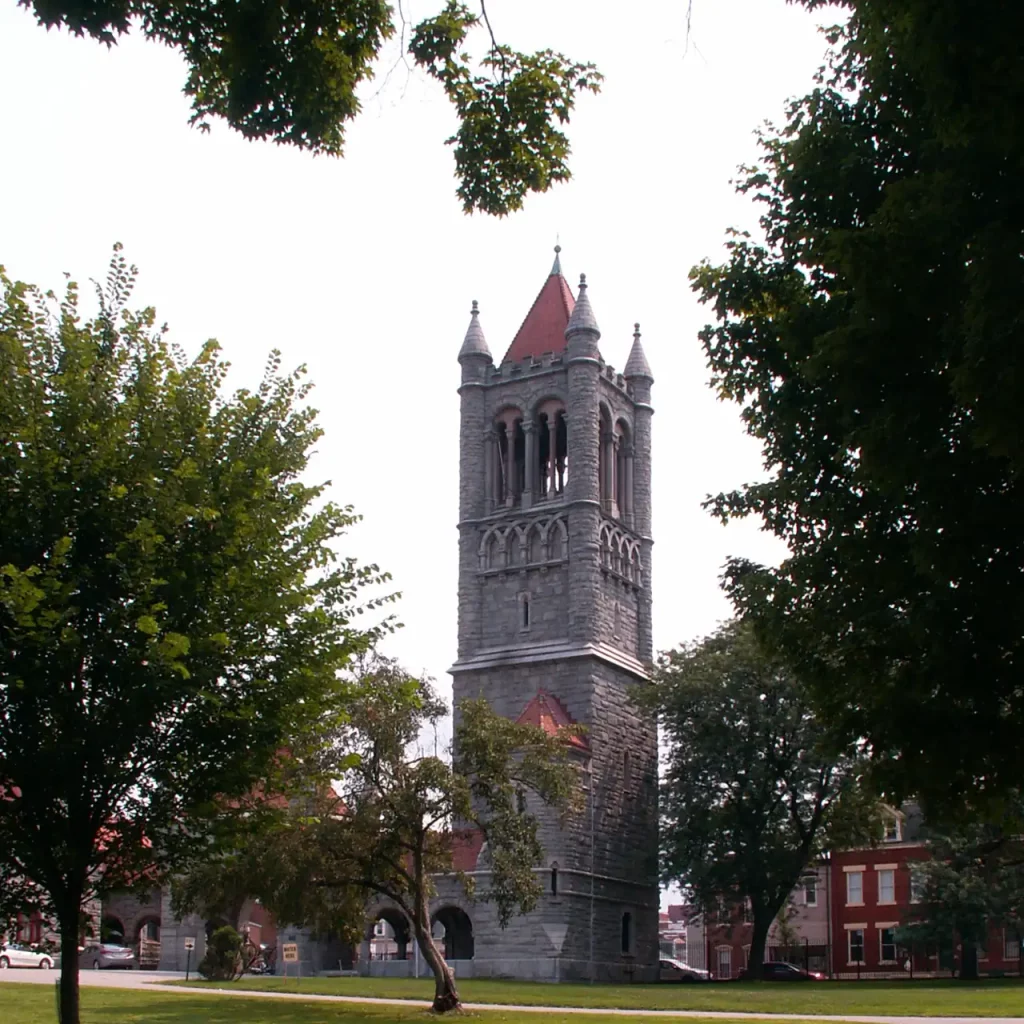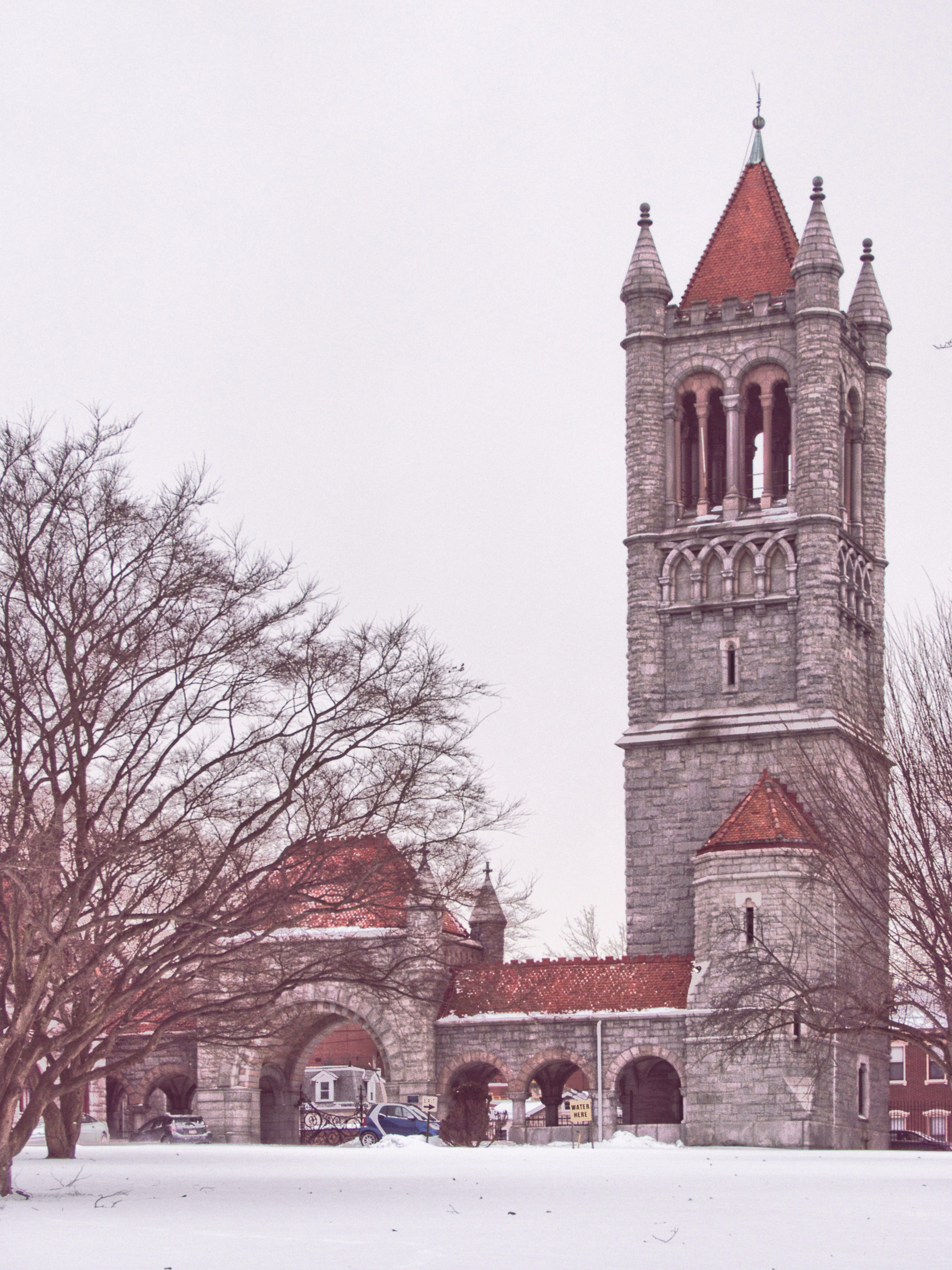
A statue, perhaps of a wingless recording angel (writing “Blessed are the dead which die in the Lord”), tops a tastefully simple classical monument.
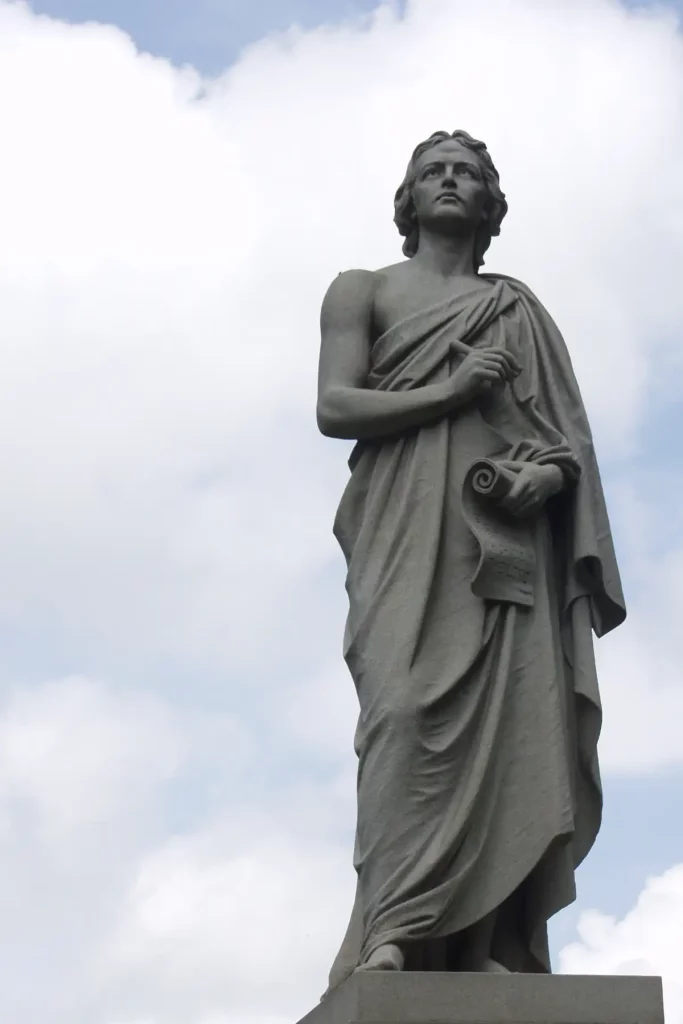


A statue, perhaps of a wingless recording angel (writing “Blessed are the dead which die in the Lord”), tops a tastefully simple classical monument.



A rusticated temple in the Modern Ionic style, notable for its fine stained glass. The painting in the face and lilies has faded, but we can still imagine how it must have looked when it was fresh.
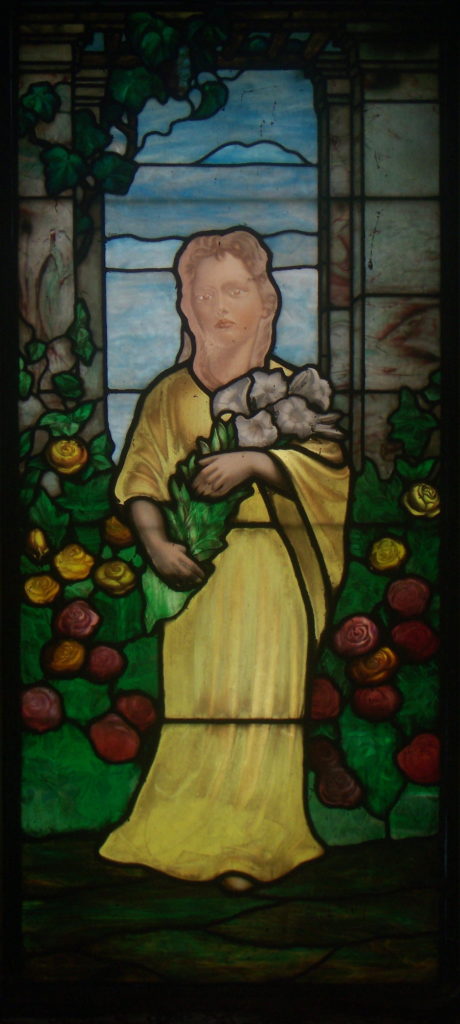

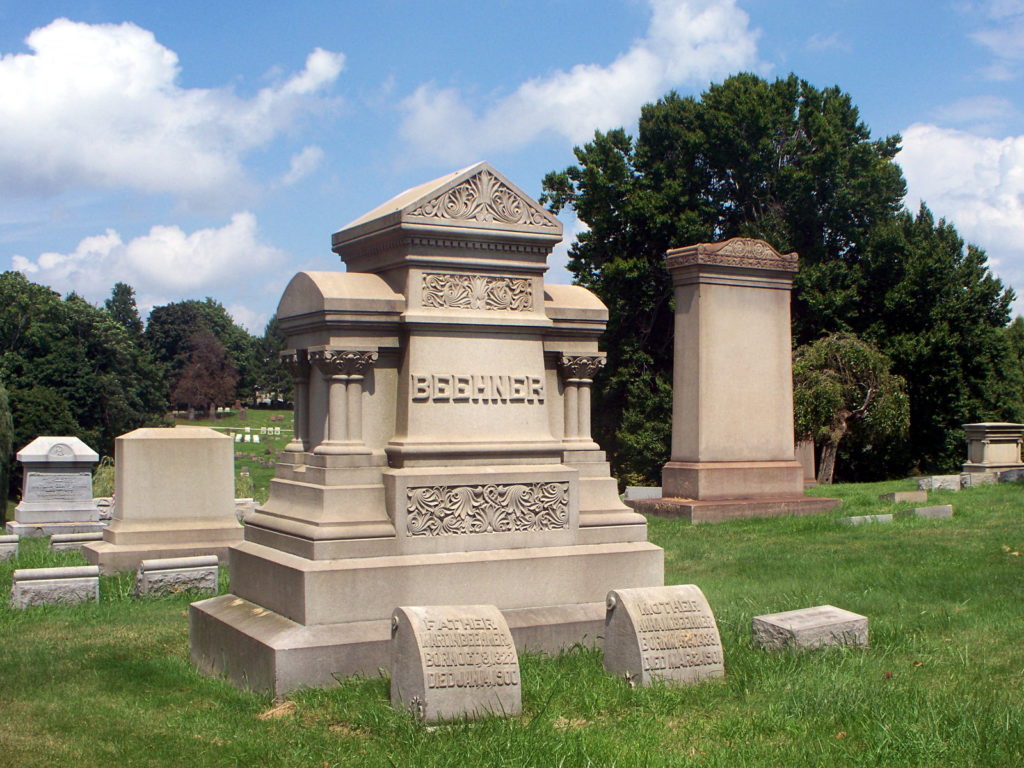
A Romanesque monument of pleasing and harmonious proportions, though one should probably try not to think too hard about what sort of structure it is attempting to represent. It probably dates from about 1900.
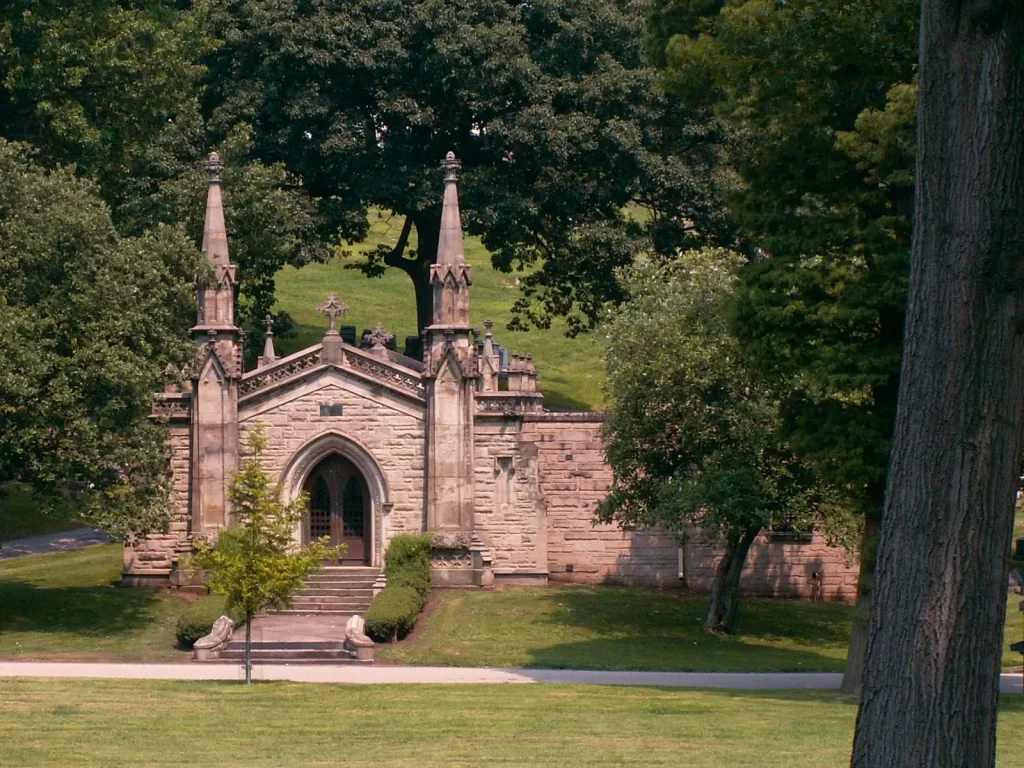
According to the cemetery’s Web site, this building was put up in 1905-1906 from a design by “P. C. Reniers’ Sons,” which largely duplicated the design of the old receiving vault by John Chislett, the original architect of the cemetery (his Butler Street entrance gate still stands). An addition of the 1960s destroys the symmetry, but fortunately the cemetery is encouraging a thick tree to grow in front of it.

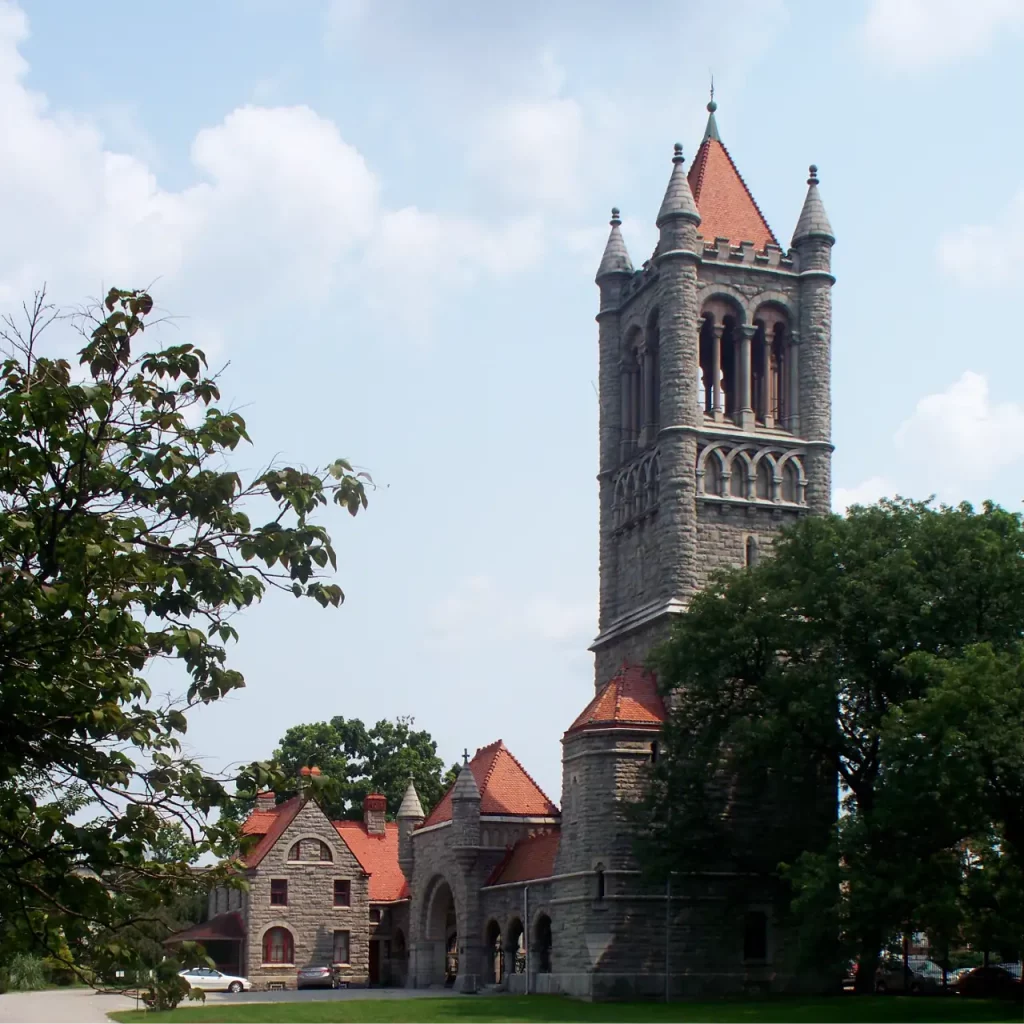
The tower, as the cemetery’s Web site points out, bears a noticeable resemblance to the tower on the Allegheny County Courthouse downtown, which was widely considered one of the most splendid buildings in America. The architect of this magnificent entrance complex was Henry Alexander Macomb, a Philadelphia architect who won a competition entered by many of the great names in Pittsburgh architecture of the period. It was begun in 1887 and finished in 1889.
